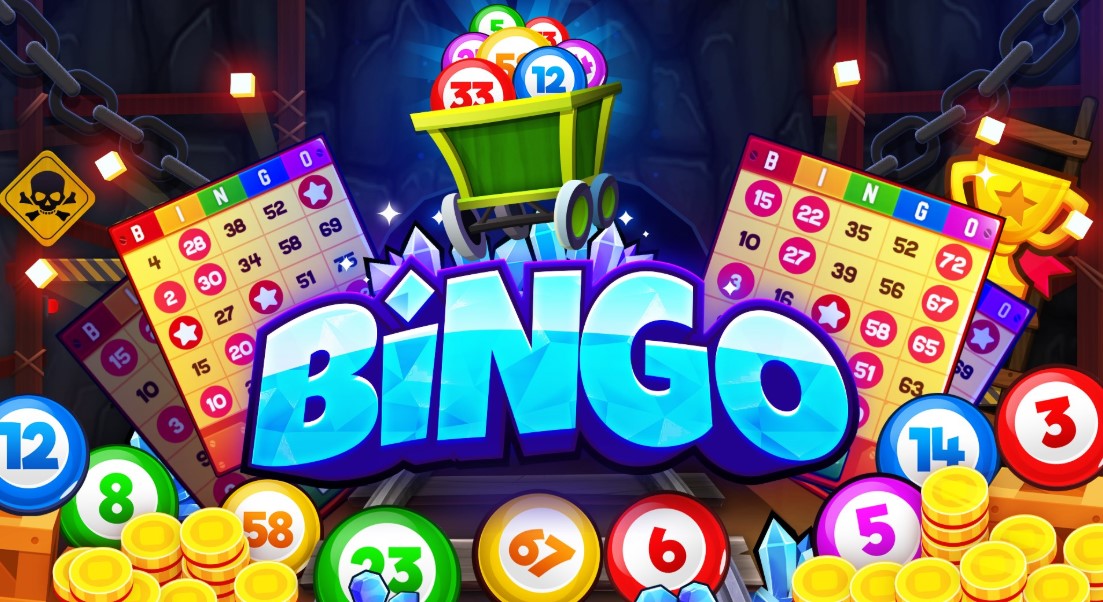Casino gambling, whether online or in physical casinos, is more than just a game of chance. It’s a compelling mix of excitement, strategy, and sometimes, significant wins. The thrill of hitting a jackpot or a winning hand can often overshadow the realities of casino gaming.
Maintaining a realistic view is crucial, ensuring that the enjoyment of gambling doesn’t evolve into a risky endeavor. Let’s delve into the hidden truths of casino gaming, offering insights to help you stay grounded and informed as you navigate the exhilarating world of casinos.
The Rise of Online Casinos in the U.S.
Online casinos in the U.S. are a pivotal part of this digital revolution, driving both innovation and growth in the gambling sector. The transition to online platforms has opened up new avenues for gambling enthusiasts, allowing for a more accessible and diverse betting experience.
This shift has been underpinned by a surge in mobile gambling, with an increasing number of users opting to play via smartphones and tablets. This trend is not just a convenience but a reflection of changing consumer preferences and technological advancements.

How Digital Platforms are Revealing the Truths of Casino Gaming
According to Statista, the global casino games market is set for significant growth, with projections indicating a rise to a market volume of US$9.95 billion by 2027, marking a 9.70% increase from 2022.
The advent of digital platforms is revolutionizing casino gaming, merging cutting-edge technology with the classic excitement of gambling. This transformation is shedding light on the underlying mechanics of casino games, offering players a more transparent and informed gambling experience.
Key aspects of this revolution include:
- Technological Innovations: Virtual and augmented reality are enhancing the gaming experience, providing immersive environments.
- Transparency in Gaming: Crucial information like Return to Player (RTP) percentages and the house edge is becoming more accessible, allowing players to understand the odds better.
- Personalized Gaming Experiences: Artificial intelligence is being used to tailor games to individual preferences, enhancing player engagement.
This digital shift brings several benefits to players, aligning with the theme of unveiling the hidden truths of casino gambling:
- Enriched Experience: Players now have access to a broader range of games in more realistic settings.
- Informed Gambling: Greater visibility of factors like RTP and house edge helps players make educated decisions, particularly in games like online slots.
- Empowerment through Knowledge: Insights into game mechanics are empowering players, blending luck with skill and strategy.
In essence, digital platforms are transforming gambling into a more convenient, diverse, and transparent activity. They are not only offering entertainment but also educating players about the realities and truths behind each bet in the casino world.
How Casinos Profit from Player Bets
Casinos have a finely-tuned system for ensuring profitability from player bets. The cornerstone of this system is the house edge, a built-in statistical advantage in every game offered. This edge means that, on average, the casino will always retain a portion of the players’ wagers as profit.
Beyond individual games, casinos also benefit from the sheer volume of wagers placed over time. While players may win occasionally, the collective outcome of many bets consistently tips in the casino’s favor.
Additionally, casinos strategically offer games with varying house edges, enticing players with lower-edge games while balancing their overall profit margin with higher-edge offerings. This blend of calculated game design, volume of play, and diverse game options allows casinos to maintain a steady stream of income from player bets.
The Casino’s Edge: Understanding House Advantage
The house edge is a pivotal factor when it comes to casino gaming. It’s the built-in advantage that ensures casinos always have the upper hand over players. This house edge varies across different games, subtly influencing the odds and potential payouts.
Understanding the house edge is crucial for players, as it directly impacts their chances of winning and the overall profitability of their gambling ventures. Let’s uncover the specifics of this crucial aspect in casino gaming:
House Edge in Online Slots
Online slots often have a higher house edge compared to many other casino games. This is primarily due to their unique payout structure, which is designed to provide occasional large jackpots. The chances of hitting these jackpots are typically lower, which increases the house edge.
Additionally, the concept of Return to Player (RTP) is crucial in understanding online slots. RTP is the percentage of wagered money that a slot machine will pay back to players over time. For instance, a slot with a 95% RTP will return $95 for every $100 wagered, in theory.
However, this is calculated over a long period and across numerous players, so individual session outcomes can vary significantly. The RTP is inversely related to the house edge – the higher the RTP, the lower the house edge, and vice versa.
House Edge in Poker
Poker stands out in the casino world because its house edge is not directly tied to the game’s odds but rather to the rake – the fee that the casino takes from each pot or tournament entry. This rake is how casinos ensure profitability from poker games, irrespective of who wins or loses at the table.
However, the unique aspect of poker lies in its reliance on strategy and skill. Unlike many casino games where outcomes are predominantly determined by chance, poker allows players to significantly influence the game through their decisions and tactics.
Skilled players can often overcome the disadvantage of the rake over time by outplaying their opponents. This skill element means that while the casino will always take its cut, the players’ expertise and strategies play a crucial role in determining their success in the game, making poker a standout in the casino gaming world for its balance of skill, strategy, and the influence of the house edge.
House Edge in Blackjack
Blackjack is a game where the house edge can significantly vary based on numerous factors, including the number of decks used and specific casino rules. For instance, games using fewer decks typically have a lower house edge. Similarly, rules like the dealer standing on soft 17 or allowing players to double down after splitting can also influence the edge.
Despite the potential for skillful play in blackjack, such as basic strategy or card counting, the house still maintains an inherent advantage. The skill element in blackjack allows experienced players to reduce the house edge, making their chances of winning better compared to purely chance-based games.
However, it’s important to remember that even optimal play doesn’t completely eliminate the house edge. It merely minimizes it, ensuring that over the long run, the casino still expects to make a profit from the game. This blend of skill and chance, alongside the variable house edge, makes blackjack one of the most strategically interesting and challenging games in the casino repertoire.
House Edge in Baccarat
Baccarat is renowned for its relatively low house edge, but this varies significantly depending on the type of bet placed. In this game, players can choose to bet on the ‘Player’, the ‘Banker’, or a ‘Tie’. Each of these bets carries a different house edge.
- Banker Bet: Typically the lowest house edge, around 1.06%, making it the most favorable bet in Baccarat.
- Player Bet: Slightly higher house edge than the Banker bet, usually around 1.24%, but still a good option.
- Tie Bet: Significantly higher house edge, often exceeding 14%, which makes it a less advantageous choice for strategic play.
Understanding these differences is crucial for players. While the lower house edges on the ‘Player’ and ‘Banker’ bets make Baccarat one of the more player-friendly casino games, the high edge on the ‘Tie’ bet demonstrates the importance of strategic betting in maximizing winning potential and minimizing losses over time.
House Edge in Lottery Style Games
Lottery-style games such as Keno, Bingo, and online scratch cards are characterized by their relatively high house edges. This is primarily because these games are predominantly based on chance, with little to no room for player skill or strategy to influence the outcome.
In games like Keno, the house edge can vary widely, often ranging from 20% to 30% or even higher, depending on the specific rules and paytables of the game. This high edge is a result of the random nature of the game and the large number of possible number combinations.
Bingo and online scratch cards follow a similar pattern. The house edge in these games is also typically high, as the outcomes are entirely dependent on luck. Players have no control over the numbers or symbols drawn, making strategic play virtually non-existent.
The Role of Chance in Casino Games
The interplay between chance and strategy is a defining element. While certain games allow for skillful play and strategic decision-making, the fundamental role of luck cannot be overlooked. This is especially true in games dependent on random number generators (RNGs), which ensure that outcomes are entirely unpredictable and fair.
- Luck vs. Strategy: In games like poker and blackjack, players can employ strategies to influence the outcome. However, even the most skilled players must contend with the inherent randomness that luck brings to each hand or round.
- Impact of Randomness on Game Outcomes: RNGs are crucial in games like slots and roulette, where they determine the randomness of results. This guarantees that each spin or draw is independent and not influenced by previous outcomes, making each game a fresh encounter with chance.
This understanding highlights that while strategies can improve chances in some games, the unpredictability of luck ensures that the thrill of gambling remains in the balance of chance and skill.
Can You Earn a Living from Gambling?
The thought of earning a living through gambling often entices many, but the realities are far less promising. While gambling can yield short-term profits, turning it into a consistent income source is highly challenging.
This is mainly due to the house edge, which ensures that the odds are generally in the casino’s favor over the long term. Additionally, the volatile nature of gambling means that winnings are unpredictable and can fluctuate dramatically. Professional gamblers who do manage to make a living often rely on skill-intensive games like poker, but even in these scenarios, the element of luck can never be completely eliminated.
Thus, while it’s not impossible, making a sustainable living solely through gambling is an exception and not the norm. It’s more realistic to view gambling as a form of entertainment rather than a viable career path.
Do Techniques and Expertise Improve Winning Odds?
The influence of techniques and expertise in casino gambling varies depending on the game. In skill-based games like poker and blackjack, a player’s knowledge, strategy, and decision-making can significantly impact their odds of winning. Players who master the art of card counting in blackjack or employ advanced strategies in poker often find themselves with better odds compared to those who rely solely on luck.
However, for games largely based on chance, such as slots or roulette, where outcomes are determined by random number generators, personal skill and strategies have little to no effect on the game’s outcome. In these instances, the odds are fixed, and winning is more about luck than expertise.
Overall, while techniques and expertise can improve odds in some casino games, they do not guarantee consistent wins, and the house edge remains a significant factor to consider in all forms of gambling.
Casino Gambling Myths vs. Facts
Common Myths Casino Gambling Facts You can always beat the house with the right strategy While strategies can improve odds in some games, the house edge means the casino always has an advantage in the long run. Card counting is illegal in blackjack Counting cards is legal, but casinos may prohibit it and can ask players to leave if caught. Online casinos offer rigged games Online casinos are highly regulated and use random number generators (RNG) to ensure fair play. Playing at certain times can give you better odds The odds are the same regardless of the time, as outcomes are determined by random number generators. Casinos manipulate slot machines to reduce payouts Slot machines use RNGs and are regularly audited for fairness, ensuring consistent odds of winning. Does High Stakes Gambling Improve Your Chance of Winning?
The thrill of high stakes gambling often comes with the misconception that wagering larger amounts improves the chances of winning. The truth is that the size of a bet does not influence the inherent odds of casino games. In games governed by random number generators, such as slots or roulette, the probability of winning remains constant, regardless of the amount wagered.
The primary difference with high stakes gambling is the potential for larger payouts. Bigger bets can lead to more significant winnings, but they also carry a proportionately higher risk of substantial losses. This aspect of high stakes gambling adds an element of heightened excitement and adrenaline but does not statistically increase the likelihood of winning.
How Casinos Keep Players Engaged for Profit
Casinos employ a variety of tactics to keep players engaged and encourage continued play, directly impacting their profitability. These strategies are designed not just to attract players, but to create an environment that entices them to stay longer and play more. From the layout of the casino floor to the rewards programs, every aspect is carefully crafted to enhance player engagement and, consequently, increase casino revenue.
Here’s how casinos keep players engaged:
- VIP Rewards Programs: To reward frequent players and encourage loyalty with exclusive benefits, perks, and bonuses.
- Comp Points and Bonuses: Offering complimentary items or bonuses for playing, incentivizing continued play.
- Atmospheric Elements: Using lighting, sounds, and décor to create a captivating and comfortable environment.
- Promotional Events and Tournaments: Hosting special events and competitions to draw in players and create a sense of community and excitement.
While engaging in recreational gambling can be enjoyable, it’s important for players to regularly perform a reality check on their gambling habits. This helps ensure that the fun doesn’t evolve into problem gambling, maintaining a healthy balance between entertainment and responsible gaming.
Addressing the Risks of Gambling Addiction
Gambling addiction is a serious concern in this industry. While most gamble responsibly, a small percentage may develop problematic behaviors. It’s important to gamble responsibly to avoid developing a compulsive gambling addiction. Recognizing and addressing these risks early is crucial for maintaining healthy gambling habits.
Resources for Gambling Addiction:
- National Council on Problem Gambling
- Gamblers Anonymous
- SMART Recovery
- American Addiction Centers
- SAMHSA’s National Helpline
- Gam-Anon
Hidden Truths of Casino Gaming FAQs
Is casino all about luck?
Casino gaming combines luck and skill. While games like slots are mostly about chance, others like blackjack and poker involve strategy. Luck plays a significant role, but skill can influence outcomes in some games.
Are most games at casinos fair?
Most casino games are fair, governed by strict regulations and random number generators. These ensure unbiased outcomes and maintain the integrity of the games. Casinos are regularly audited for fairness and compliance with gaming laws.
Alan Draper
Alan is a vastly experienced sports and gambling writer who is the Chief Editor of The Sports Daily.Alan is a vastly experienced sports and gambling writer who is the Chief Editor of The Sports Daily.View All Posts By Alan Draper


